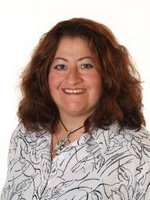Yesterday, sep 28th I visited this conference ("Beyond the boundaries of the Electronic Learning Environment") which was held for the second time in Utrecht, The Netherlands. Starting with almost 200 attendees, the morning part of the conference was provided by three distinguished, international speakers starting with Chuck Severance, Executive Director of the Sakai Foundation. For me this was the second time in three weeks that I attended a presentation of Chuck. This one was quite different from the one in Luebeck. Chuck provided a general overview of Sakai and the vision behind the community. He gave us a very clear perspective on how to position Sakai as a teaching, learning research and most of all collaboration tool. In that perspective Sakai is more related to Lotus Notes or Sharepoint that to the typical VLE's like Blackboard or Moodle which are designed from a traditional teaching perspective.
Although already familiar it was good to hear about the way the development community works. First, there is someone having an idea and contributes that to the community. Secondly, one or more developers in the community may decide to develop a provisional version of the tool. The third and most exiting part is probably the decision whether or not it should be implemented in a next production release. The decision on this is not a matter of getting a lot of votes, but on experiences from people who used it in their daily practice. If they like, it's stable and the QA tests have proved to be succesfull, the component might included in the next production release.
One of the attendees asked Chuck's opinion about the Blackboard patent in the US. Chuck made it very clear (and I strongly agree on that), that this patent is rather ridiculous. It's like having a patent on 'sunrise', in this specific case saying that there is a distinctive role between instructors and learners. It's a big question whether the patent will hold in court. In a worst case scenario you may be confronted with a payment for the patent, maybe $ 5000 a year, but it doesn't matter if you use Sakai or another LMS. So his strong advice is:
proceed with what you are doing and what you believe in is right.
The presentation of Sarah Porter (JISC) on the e-Framework did not include very much new information for me. Although it was good to hear (and in accordance with a shift of attention within the Sakai community) that services are more and more considered from the USER DOMAIN. Mapping the user provides information on how to design necessary services.
The third interesting keynote was by Scott Wilson (CETIS) on the personal learning environment (PLE). Another acronym after ELO, ILE, VLE, LMS, CAI, ITS, etc... ? I like the idea very much and believe PLE is indeed a next step forward, relating to the Web 2.0 generation in which the web has become a read-write environment in which the user can actually influence what's happening for him/her. Formal and informal learning are being combined, long lasting communities of practice (before and after the course someone is taking) and using shared goals to forge a social identity are key issues in the PLE approach. Important to note is that a PLE is personally constructed, it is not a box you provide. It's about tailoring the infrastructure so it will be supportive for
you.
Interesting links to visit:
I also joined Scott's afternoon workshop on PLE. One of the questions was about the role of the teacher in a PLE. What strategies can a teacher take, because you cannot be sure what students actually see within there PLE. One of the solutions could be that a students gives two or three things that can be tracked (e.g. by RSS) as proof of achieving a certain competence. It's clear that the variety of information sources becomes much bigger, which makes it a big challenge to deal with in your role as a teacher.
Another, more fundamental issue is how to determine that person x indeed achieved learning objective y? Promoting open access is one thing, but what is the real incorporation into cognitive schemata of the learner if information can be collected in a very easy, open way. Copy-pasting a nice piece of work is not difficult, but do they actually learn? What's the transfer to other parts of the curriculum or further in time: to the outside world.
A workshop that strongly connects to the PLE was the workshop about ELGG. It was the first time I heard about it. It is based on a model of a distributed global learning environment. ELGG may take information from different underlying systems and bring it together in one coherent environment for the user. Interesting features are:
- Personal and community blogging
- Tagging
- Private and public communities
- Podcasting
- Social Networking
- Learner defined spaces
- Personal and community file storage




